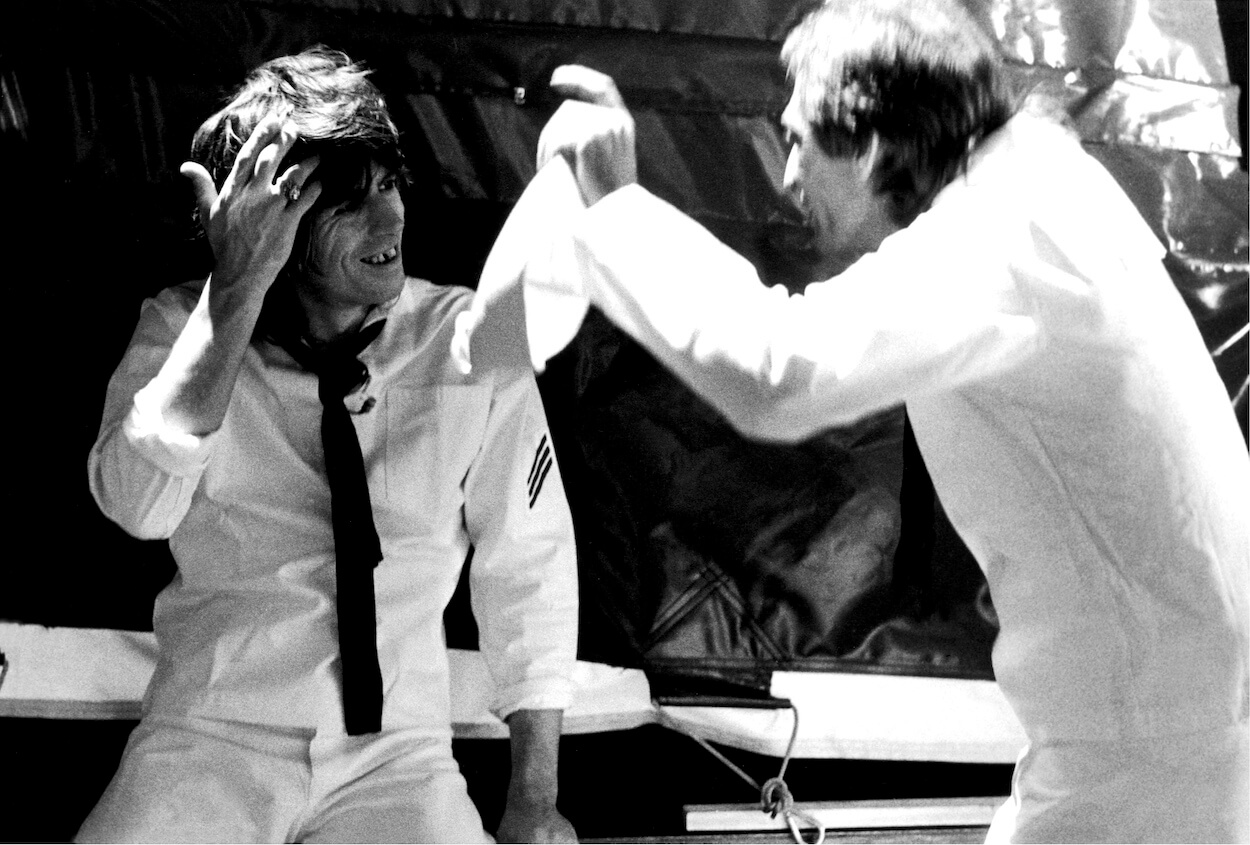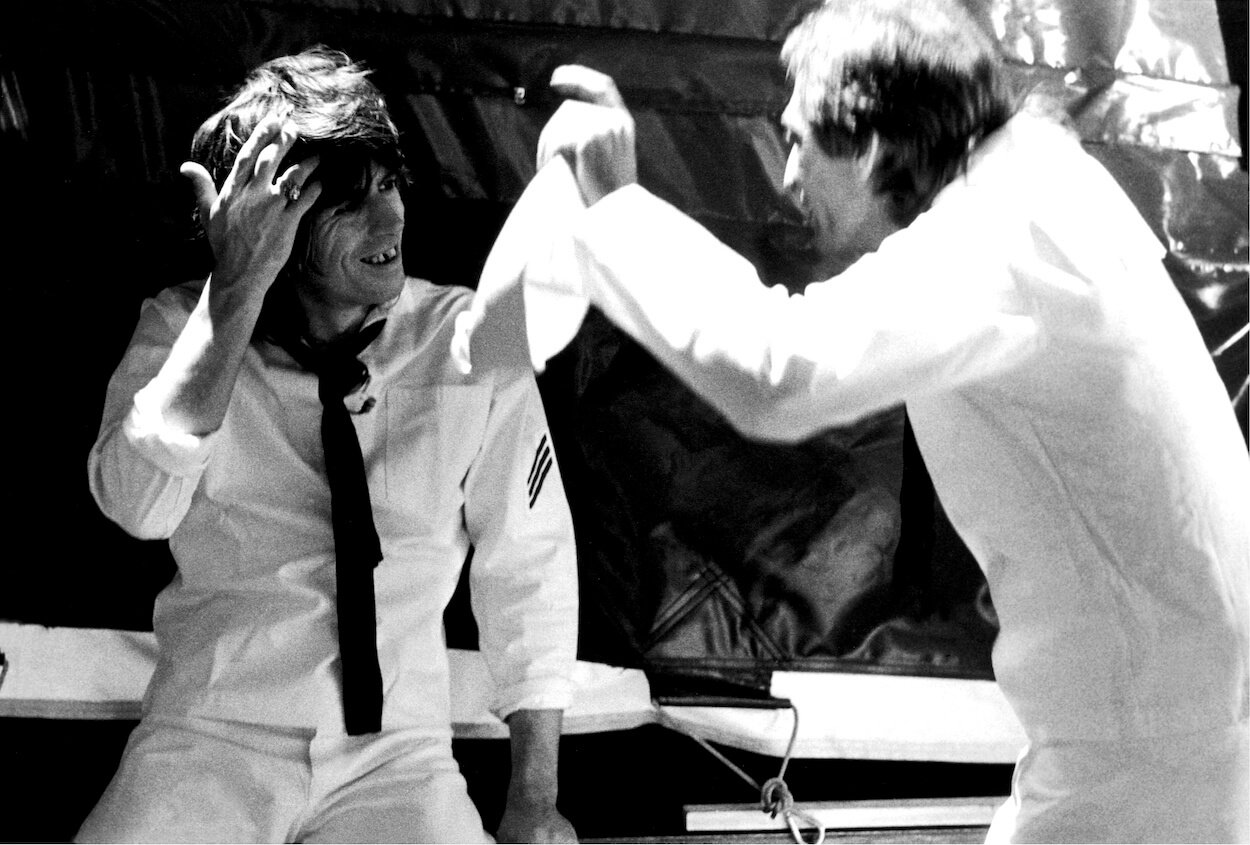
Keith Richards’ Is Wrong About the Importance of The Rolling Stones’ Song ‘Street Fighting Man’
The Rolling Stones have penned several notable songs in their career. “Street Fighting Man” is one of them. Yet the two most notable Stones have differing opinions. Guitarist Keith Richards called it drummer Charlie Watts’ most important record, while singer Mick Jagger doesn’t like the song much in his older age. We’re going to have to side with Keith on this one, even though he’s wrong — “Street Fighting Man” was important for all of The Rolling Stones.

Keith Richards said Charlie Watts did his ‘most important’ drumming on ‘Street Fighting Man’
In the book Anatomy of a Song by Marc Myers, Richards said “Street Fighting Man” came together quickly — once he figured out how to record it. He developed the riff long before The Rolling Stones placed it on their 1968 album Beggars Banquet.
He took his acoustic guitar and portable tape recorder to Olympic Sound Studios in London. Watts met him there with a pop-up drum kit, Myers writes.
The pair recorded the opening riff and drum beat into Richards’ hand-held recording unit; Watts added a bass drum when the Stones fleshed out the song. Richards said that experimental energy made “Street Fighting Man” one of Watts’ most important tracks (per Myers):
“I think ‘Street Fighting Man’ is Charlie’s most important record. Listen to him on there — he has this wall of sound thing going the way he’s hitting that snap kit and the bigger drum. When you experiment the way we did as a band, the smallest little things can happen that turn out to be a big deal. You just need the determination to go there.”
Keith Richards
We have to agree with Richards about “Street Fighting Man” being an important record, but not only for Watts. The experimentation while recording the song came in handy later in The Rolling Stones’ career.
Richards is wrong — ‘Street Fighting Man’ was important for all of The Rolling Stones
Keith said “Street Fighting Man” was Watts’ most important performance, but he’s wrong to narrow it down to just one person. It’s a crucial song for The Rolling Stones, too.
They weren’t afraid to experiment before they became world famous. Take the darkly mysterious tones of “Paint It, Black,” the twisted R&B of “Have You Seen Your Mother, Baby, Standing in the Shadow?” the pseudo-psychedelia of “Yesterday’s Papers,” and the entirety of Their Satanic Majesties Request as examples.
Richards’ aggressive guitar strumming and Watts’ beat created the backbone for a song that Keith said “came together through a series of accidents and experimentation” (per Myers).
The Stones channeled that experimental streak throughout their career after “Street Fighting Man.” That’s why Richards was wrong to say it was Watts’ most important record. The song signaled the Stones could be experimental while finding mainstream and critical success. It proved they didn’t have to follow a formula to write a hit song.
The aimless jam “I Just Want to See His Face” from Exile on Main St. is the definition of an experiment committed to tape. Or the disco-influenced “Miss You” and countrified new wave of “Start Me Up.”
Further down the line, one could point to the Moroccan street music of Steel Wheels’ “Continental Drift” or Bridges to Babylon’s bluesy electronica on “Let’s Get Juiced” as signs the Stones never gave up their experimental side. Richards traces some of that back to “Street Fighting Man,” which makes it one of the band’s most important works.
How did ‘Street Fighting Man’ fare on the charts?
Keith Richards was wrong to say “Street Fighting Man” was important only for Charlie Watts. It was also an important one for The Rolling Stones as they carried that experimental streak with them for decades. Yet its chart performance doesn’t reflect its impact.
“Street Fighting Man” climbed to No. 48 on the Billboard charts in October 1968. It spent six weeks on the chart. Beggars Banquet fared better, rising to No. 5 during its 32-week run on the album chart.
The Stones didn’t release the song as a single in England until 1971, and it climbed to No. 21 during an eight-week stay, per the Official Charts Company. Similar to the U.S., the album had better success. Beggars Banquet went to No. 3 in the Stones’ home country.
For more on the entertainment world and exclusive interviews, subscribe to Showbiz Cheat Sheet’s YouTube channel.


